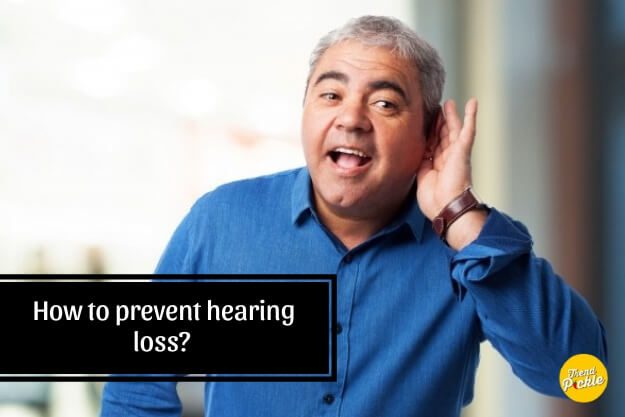Hearing loss is also called as hearing impairment and is characterised by a partial or total inability to hear. It is a common problem faced by many adults above the age of 65. Sometimes hearing loss can also occur in younger adults for various reasons like constant exposure to loud noise, excessive earwax, etc. Hearing loss is categorised into three types which are:
● Sensorineural Hearing Loss-
This is the most common type of hearing loss, which involves damage to the inner ear. This hearing loss is permanent and caused by the damage of the auditory nerve or cilia. Cilia are tiny hairlike cells present in the inner ear.
● Conductive Hearing Loss-
This type of hearing loss is not that severe compared to sensorineural hearing loss. It is caused due to the damage in the outer or middle ear. This could happen due to excessive wax or bone damage in the middle ear that obstructs the sound from reaching the inner ear. The inner ear and auditory nerve remain healthy in a conductive hearing loss.
● Mixed Hearing Loss-
This type of hearing loss is very rare and is a combination of both sensorineural and conductive hearing loss.
Causes of Hearing Loss
Some of the common causes of hearing loss are as follows
● Accumulation of Earwax: Earwax needs to be cleared out regularly. Excessive earwax can obstruct the ear canal, which prevents the transmission of soundwaves. It is advisable to consult a doctor on tips to remove excess earwax.
● Growth of abnormal bones or tumours or an ear infection could cause damage in the outer or the middle ear leading to hearing loss.
● Ageing or exposure to loud noise can cause severe damage to Cilia. Cilia are tiny hair or nerve cells present in the inner ear cochlea that sends sound signals to the brain.
● Sudden exposure to loud noise or change in pressure, infection, accidental damage can rupture the eardrum, which causes severe hearing loss.
Symptoms of Hearing Loss
Here are some of the common symptoms of hearing loss:
● Difficulty in hearing consonants.
● Difficulty in listening to words clearly amidst loud background voice or in a crowded place
● Frequently asking others to repeat what they said in a loud and clear voice.
● You might prefer listening to music or a television show in a louder volume.
● You start to hear the speech and other sounds in a muffled tone.
● Withdrawal from a conversation.
● Unable to follow a phone conversation
● Ringing sound in the ears
Precautions to Prevent Hearing Impairment
Regular checkups –
If you are working in an environment where you are constantly exposed to loud noise, you need to get your ear checked regularly. This way, you can take precautionary measures to prevent further hearing loss.
Protect your ears –
Limit the exposure to loud noise by using plastic earplugs or glycerin filled earmuffs in workplaces where there is a constant loud noise.
Adapt listening to music with lower volume –
A continuous exposure to loud noise through various recreational activities such as listening to rock concerts, hunting, usage of power tools or riding a snowmobile can damage your ears easily. You can protect them from listening to music or tv shows in low volume. You can wear hearing protectors during other recreational activities to cut down loud noise.
When to See A Doctor ?
It is important to address hearing loss before it turns out to be a permanent loss. It is advisable to consult a doctor if you are constantly under exposure to an environment with a loud noise. Otherwise, you can consult a doctor if you experience severe symptoms of hearing loss. Consulting a doctor as soon as symptoms appear can lower the risk of permanent ear damage.
A Guide to the Treatment Options
Hearing loss treatment depends on the severity of the condition. ENT specialists recommend treatment options. Here are a few treatment options for hearing loss-
Hearing Aids –
These hearing aids can be worn behind or inside your ears. They help in boosting the sound electronically before getting into your ears. It is important to remember that hearing aids do not cure or resolve hearing loss. However, it is used to make the hearing experience better.
Cochlear Implants–
These implants are suggested only when hearing aids don’t work to resolve the problem, Cochlear implants are electronic devices that stimulate hearing nerves directly in the inner ear by producing a sensation of sound.
Middle Ear Implants –
These devices are recommended for individuals who do not benefit from hearing aids or need a severe treatment such as cochlear implants. Middle Ear Implants are worn above the ears to pick up sounds that are converted into electronic signals. These signals travel through the skin to reach the tiny bones in the middle ear.

